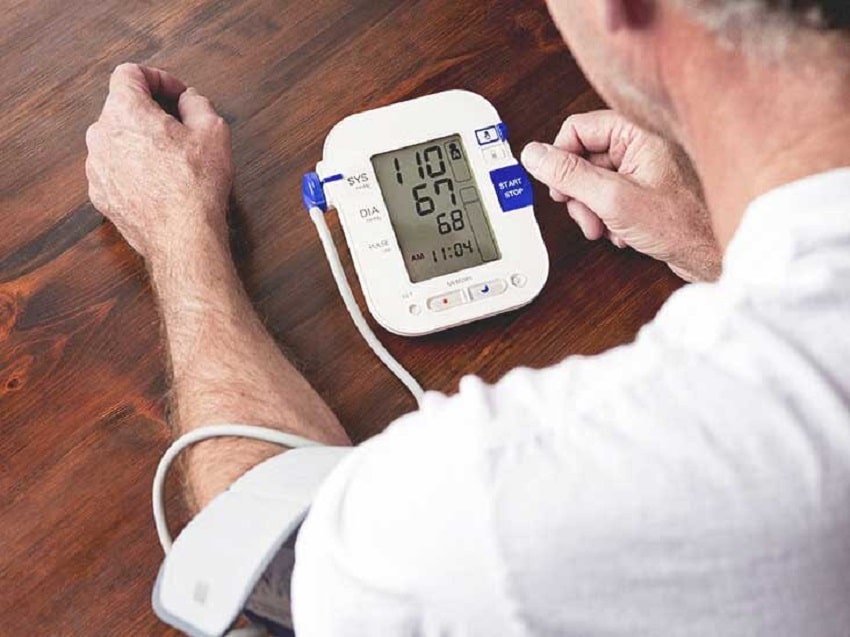Introduction
High bloodstream pressure can result in many serious health issues, for example cardiac arrest, heart failure, stroke, and kidney disease. Treating high bloodstream pressure early is essential in stopping these along with other problems.
A large number of different medications might help treat high bloodstream pressure. These medicine is known as antihypertensives. They’re split into a variety of groups, because both versions works differently and results in different negative effects.
Because of so many possibilities, locating the best option for you may take a moment and persistence. Your physician works along with you to get the best treatment for you, which might include a number of medications.
Diuretics
Diuretics are the most generally used drugs for the treatment of high bloodstream pressure. They assist the kidneys eliminate excess water and sodium, or salt. This reduces the level of bloodstream that should go through your bloodstream vessels, which lowers your bloodstream pressure.
You will find three major kinds of diuretics: thiazide, potassium-sparing, and loop diuretics. Thiazide diuretics have less negative effects than these. This is also true when they’re prescribed within the low doses which are generally utilized in treating early high bloodstream pressure.
Types of thiazide diuretics include:
- chlorthalidone (Hygroton)
- chlorothiazide (Diuril)
- hydrochlorothiazide (Hydrodiuril, Microzide)
- indapamide (Lozol)
- metolazone (Zaroxolyn)
Types of potassium-sparing diuretics include:
- amiloride (Midamor)
- spironolactone (Aldactone)
- triamterene (Dyrenium)
- Types of loop diuretics include:
- bumetanide (Bumex)
- furosemide (Lasix)
- torsemide (Demadex)
- Types of combination diuretics include:
- amiloride hydrochloride/hydrochlorothiazide (Moduretic)
- spironolactone/hydrochlorothiazide (Aldactazide)
- triamterene/hydrochlorothiazide (Dyazide, Maxzide)
Beta-blockers
Beta-blockers work by blocking those things of chemicals within your body that excite your heart. This enables your heart to conquer with less speed and pressure. Your heart pumps less bloodstream with the bloodstream vessels with every beat, so bloodstream pressure decreases.
Types of these drugs include:
- acebutolol (Sectral)
- atenolol (Tenormin)
- betaxolol (Kerlone)
- bisoprolol (Zebeta)
- bisoprolol/hydrochlorothiazide (Ziac)
- metoprolol tartrate (Lopressor)
- metoprolol succinate (Toprol-XL)
- nadolol (Corgard)
- pindolol (Visken)
- propranolol (Inderal)
- solotol (Betapace)
- timolol (Blocadren)
Angiotensin converting enzyme (ACE) inhibitors
ACE inhibitors keep against creating a hormone known as angiotensin II, which in turn causes bloodstream vessels to narrow. These medications lower bloodstream pressure by helping limited bloodstream vessels expand to allow more bloodstream through.
Types of ACE inhibitors include:
- benazepril (Lotensin)
- captopril (Capoten)
- enalapril (Vasotec)
- fosinopril (Monopril)
- lisinopril (Prinivil, Zestril)
- moexipril (Univasc)
- perindopril (Aceon)
- quinapril (Accupril)
- ramipril (Altace)
- trandolapril (Mavik)
Angiotensin II receptor blockers (ARBs)
These kinds of medication also protects the bloodstream vessels from angiotensin II. To be able to tighten bloodstream vessels, angiotensin II must bind having a receptor site. ARBs prevent that from happening. Consequently, bloodstream pressure is decreased.
Types of ARBs include:
- candesartan (Atacand)
- eprosartan (Teveten)
- irbesartan (Avapro)
- losartan (Cozaar)
- telmisartan (Micardis)
- valsartan (Diovan)
Calcium funnel blockers
To maneuver, all muscles need calcium to circulate interior and exterior muscle cells. Calcium funnel blockers help block calcium from entering the graceful muscle tissues from the heart and bloodstream vessels.
This will make the center beat with less pressure helping bloodstream vessels relax. Consequently, bloodstream pressure decreases.
Types of these drugs include:
- amlodipine (Norvasc, Lotrel)
- diltiazem (Cardizem CD, Cardizem SR, Dilacor XR, Tiazac)
- felodipine (Plendil)
- isradipine (DynaCirc, DynaCirc CR)
- nicardipine (Cardene SR)
- nifedipine (Adalat CC, Procardia XL)
- nisoldipine (Sular)
- verapamil (Calan SR, Covera HS, Isoptin SR, Verelan)
Alpha-blockers
In a few instances, the body makes hormones known as catecholamines. These hormones can bind to areas of cells known as alpha-receptors. When this happens, your bloodstream vessels narrow as well as your heart beats faster with more pressure. These actions cause your bloodstream pressure to increase.
Alpha-blockers work by blocking catecholamines from binding to alpha-receptors. Consequently, bloodstream can flow with the bloodstream vessels more freely, as well as your heart beats normally. This can help decrease your bloodstream pressure.
Types of alpha-blockers include:
- doxazosin (Cardura)
- prazosin (Minipress)
- terazosin (Hytrin)
- Alpha-beta-blockers
Alpha-beta-blockers possess a combined effect. They block the binding of catecholamine hormones to both alpha- and beta-receptors. Therefore, they are able to reduce the constriction of bloodstream vessels like alpha-blockers do. Additionally they slow lower the speed and pressure from the heartbeat like beta-blockers do.
Types of alpha-beta-blockers include:
- carvedilol (Coreg)
- labetalol (Normodyne, Trandate)
- Treating for multiple conditions
The kind of bloodstream pressure medication your physician prescribes may rely on the other health issues you’ve. For instance, for those who have coronary heart (CAD) and bloodstream pressure, your physician may suggest a beta-blocker. For those who have were built with a myocardial infarction because of CAD, a beta-blocker can decrease your bloodstream pressure and reduce your general chance of dying.
For those who have diabetes, your physician may choose an ACE inhibitor or perhaps an ARB. That’s since these drugs might help safeguard the kidneys from diabetic damage by decreasing the bloodstream pressure inside your kidneys.

